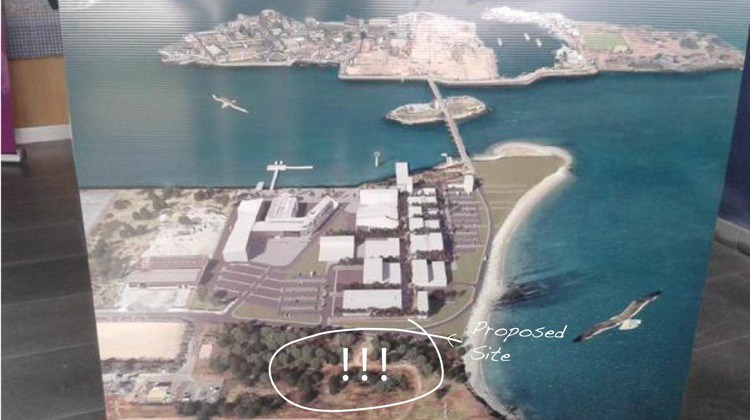Tánaiste left frustrated by decision to grant permission for Cork Harbour incinerator

May 31st, 2018
The Tánaiste has expressed his “deep disappointment” and “frustration” with An Bord Pleanála’s (ABP) decision to grant permission for a waste-to-energy incinerator in Cork Harbour.
This is the third time since 2001 that waste firm Indaver Ireland has proposed the building of an incinerator in Ringaskiddy to take in 240,000 tonnes of waste a year.
Reacting to the decision, Simon Coveney, TD said that it was “inconceivable” for a major incinerator to be developed in the harbour.
He added that the decision does not sit well with the State’s investment in a nearby marine college, clean-energy research centres and the clean-up of an old steel mill on Haulbowline Island.
“The An Bord Pleanála Inspector who managed the oral hearing recommended refusal based on many of those arguments,” he added.
“We are working hard to create something very special at the heart of Cork Harbour area which is of national significance. I can understand that people will be very angry and frustrated at this announcement today and I share this sense with them.”
The inspector at the third oral hearing on the matter recommended that the development should be rejected. The decision letter released to objectors yesterday states that ABP has “addressed” the inspector’s reasons for recommending the refusal on issues including the adequacy of the Environmental Impact Assessment and dioxins and health.
The government has systematically voted down waste reduction bills which would make incineration economically unviable. This 'deep disappointment' and 'frustration' isn't going to cut it. Can we all stop divorcing environmental issues from their causal links please? https://t.co/Pr9NU9QFQt
— Lorna Bogue (@LornaBogue) May 31, 2018
Green Party reaction
The Green Party’s representative in Cork South Central, Lorna Bogue, said that the Tanaiste’s comment this morning “isn’t going to cut it” as the Government has “systematically” voted down her party’s Waste Reduction Bill that would “make incineration economically unviable”.
The Bill calls for an outright ban on single-use non-recyclable plastics such as coffee cups and plastic cutlery by 2020. The Bill, voted against by the Government last year, also seeks to introduce a deposit and return scheme (DRS) for beverage containers such as cans and plastic bottles.
“It is all well and good for politicians to pay lip service to the people in the local community but this is ultimately a result of their decision making when it comes to waste management,” Ms Bogue said.
“The truth about incineration is that it is a short-term but ultimately damaging quick fix. Most incinerators are dependent on state funding or diverting waste away from recycling. This incinerator is no different and it is time that our politicians took waste management seriously.”
Ms Bogue said that Ireland does not produce enough waste to keep the incinerator operating and will require waste to be imported or diverted from recycling. “The Poolbeg and Carranstown incinerators combined have the capacity to take 820,000 tonnes of waste.
“There is currently around 997,000 tonnes of residual waste that needs disposal in Ireland. This incinerator will bring incineration capacity to 1,060,000 tonnes… This is a bad day for Ireland taking responsibility for its own waste and there is no incentive for recycling now,” she added.
Earlier this month, the EU approved new circular economy policies that require Member States to prioritize prevention, re-use and recycling above incineration.

Proposed Site Location Photo: CHASE
Locals left ‘shocked’ and ‘angry’
The decision has also been met with anger by local groups who have been fighting the proposals for 18 years. Mary O’Leary, the chairperson of the Cork Harbour Alliance for a Safe Environment (CHASE), said that the local group was “shocked, angry and deeply disappointed” by the decision.
The case has been deferred over a dozen times and is the third attempt to build an incinerator at the site. Ms O’Leary said that the “endless delays” was a cause for concern, but that the group “hoped against hope” that ABP would come to the “right decision” and refuse planning permission.
“CHASE will examine the full order before looking at what options are open next,” she added. CHASE also recently lodged a complaint to the European Parliament, claiming that the Irish State has failed to comply with EU planning and participation law in relation to the case.
[x_author title=”About the Author”]







